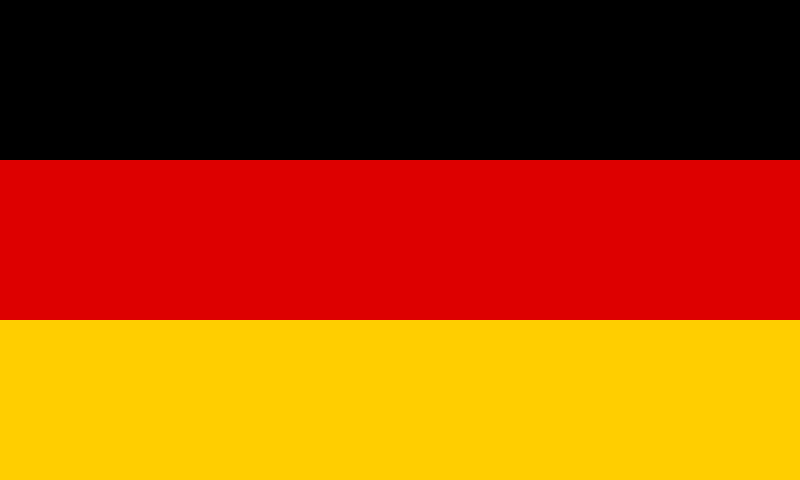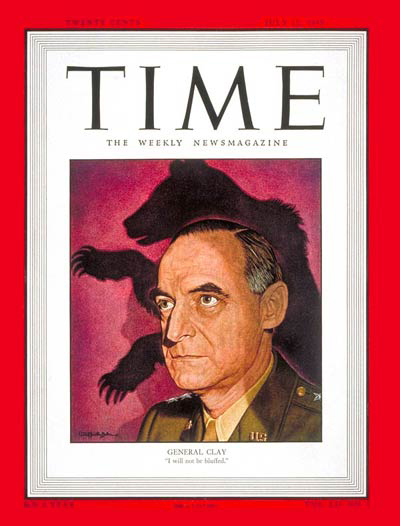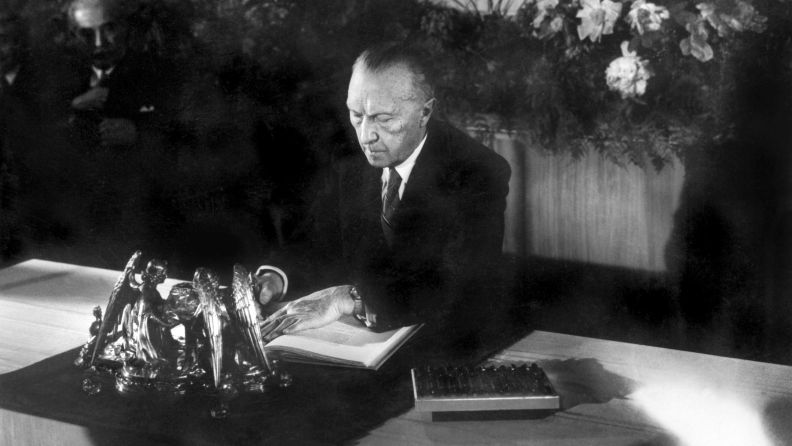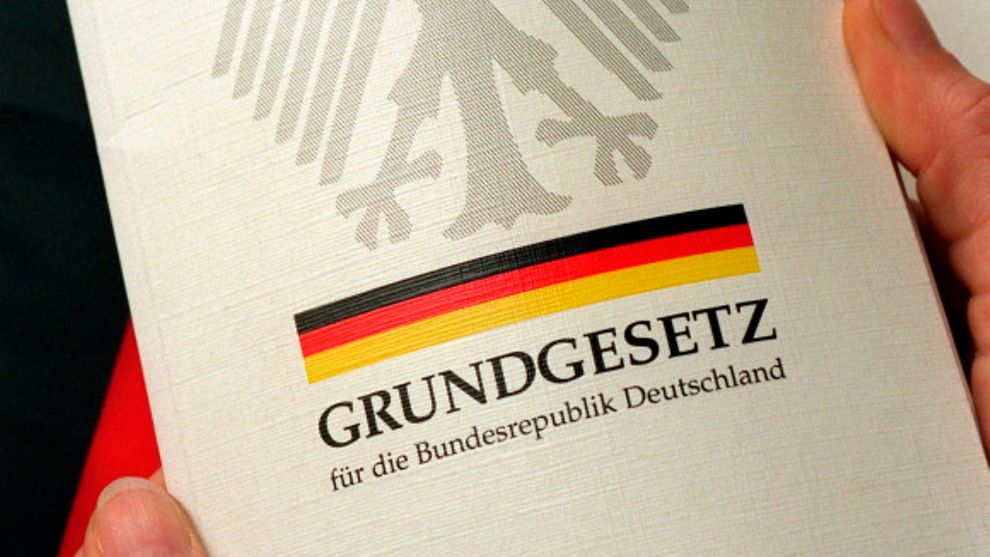Germany - Grundgesetztag
 Federal Republic of Germany
Federal Republic of Germany
Today's Flag
is Germany, in celebration of the 75th anniversary of adoption of the Basic Law on 23 May 1949 and the foundation of the Federal Republic of Germany. In 1945, the Allied powers - United States, United Kingdom, Union of Soviet Socialist Republics and France had assumed all powers of government in the former German state. With almost all levels of government either collapsed or minimally functional, and an economy at a standstill, the Allies soon found themselves having to care for, feed and regulate the occupied territories on their own. While the Soviet Union continued to extract reparations from the ruined industry and remaining assets in their zone, the U.S., British and French military governments almost immediately recognized a crisis underway and embarked on a relief program that required importing thousands of tons of food and other products to support the population. Financial, ideological and technical disputes between the Eastern and Western Zones led to the Soviet walk out from almost all of the quadripartite agencies set up to restore a working government. Forging ahead alone, the US, British and French sectors formed a trizone trading area and undertook to establish a responsible democratic government that could govern with the support its own people.

Military Governor and U.S. Army General Lucius Clay (architect of the Berlin Airlift) held democratization of the U.S. Zone as one of his highest priorities, as well as encouraging freedom of the press, reorganization of the financial system and starting many cultural/educational programs. Organization of an export market to fund a German focus on industrialization combined with the Marshal Plan, produced the Wirtschaftswunder (Economic Miracle,) that allowed recovery to advance rapidly. With the Berlin Blockade crisis entrenching European divisions, General Clay and the other Western military governors impelled the Minister-Presidents of the Länder (states) to gather in Frankfurt to organize a constitutional convention to restore federal government.
The delegates immediately recognized the symbolism of adopting a definitive constitution, and they determined to not formalize the contemporary division of Germany as permanent. Instead of a constitution, they proposed to draft a Grundgesetz or Basic Law, avoiding any language that could possibly hinder future re-unification with the (then) cut-off eastern zone and other areas outside West Germany. In September of 1948, the Parliamentary Council formed and began meeting in Bonn. Following nine months of conferences and negotiations, their work on the Basic Law was complete. Fourteen months after beginning the entire process, including ratification by the Länder and Occupation Authorities, the Chairman of the Parliamentary Council Konrad Adenauer, signed the Grundgesetzt into effect on 23 May 1949, thus creating the Bundesrepublik Deutschland, or Federal Republic of Germany.
 Picture Alliance/dpa
Picture Alliance/dpa
In 1990, the Soviet Union collapsed along with the Berlin Wall. Reunification was achieved when, after conducting the first free elections in decades, the Deutsche Demokratische Republik (East Germany) voted to accede to the Basic Law together with the Bundesrepublik Deutschland (West Germany) as provided by Article 23. The remaining residual powers held by the Allies were restored to Germany with full sovereignty by the signing of the Two-Plus-Four Treaty in 1991.
Today, the Basic Law is considered a powerful yet concise document that successfully created a state with a robust representative legislature, an effective executive and a strong, independent judicial system. Interestingly, Article 79 contains an Ewigkeitsklausel or "eternity clause" that permanently prevents the removal or reduction of any of the fundamental rights and freedoms stipulated in the first twenty articles of the Basic Law. Many countries have taken the Basic Law as a model for creating their own constitutions.
 Basic Law - FRG
Basic Law - FRG
Quick Facts:
Name: Bundesrepublik Deutschland (Federal Republic of Germany)
Head of State: President Frank-Walter Steinmeier (19 March 2017)
Head of Government: Chancellor Olaf Scholz (8 December 2021)
Population: 83,256,969 (click here for Worldometer current statistic)
Citizens of Germany are called: Deutsche (German) or Germans (English)
State Religion: religious freedom guaranteed by Basic Law
Currency: € Euro
Capital: Berlin
Population: 4,069,000
Type of Government: Federal Parliamentary Republic
Governing Body: President, Chancellor, Bundesrat + Bundestag
Founded: 23 May 1949
Flag Adopted: 23 May 1949
Special National Holidays: Grundgesetztag (Constitution Day,) 23 May; Tag der Deutschen Einheit (Day of German Unity,) 3 Oct.
Maps of Germany: CIA World FactBook
Today's Flag: ©1989-2024 DJ CLIFFORD, All Rights Reserved
